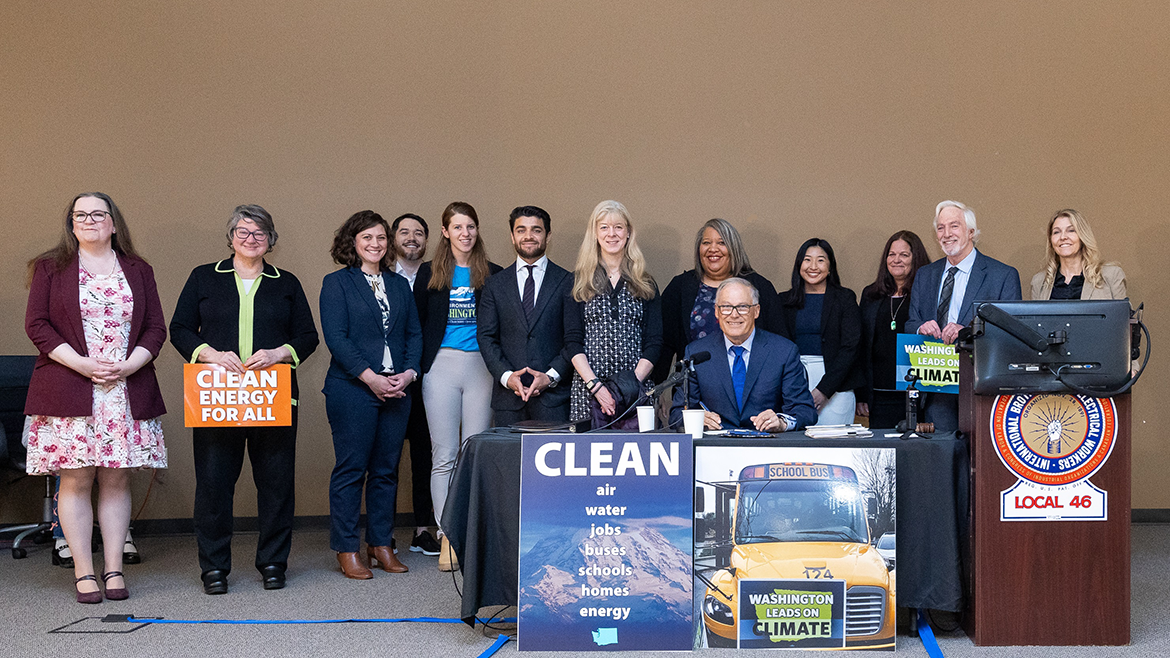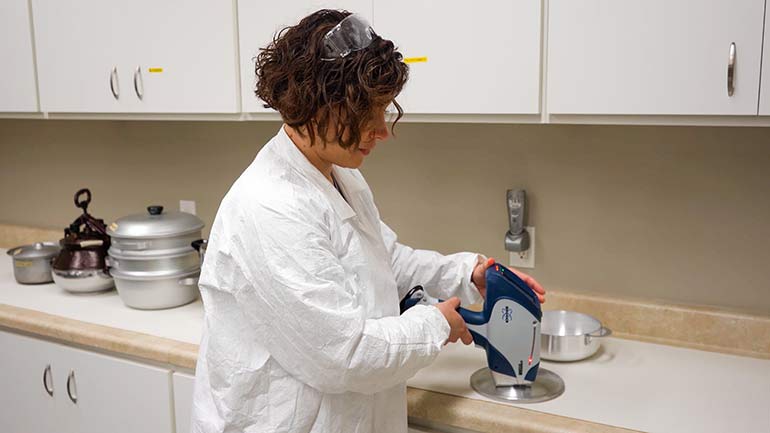Research by Hazardous Waste Management Program in King County drives historic state law banning sale of lead-contaminated cookware
Summary
Research into lead-contaminated cookware by the Hazardous Waste Management Program in King County has resulted in a new state law prohibiting the sale of cookware tainted with the metal that is linked to a wide range of serious health concerns.

News
Research led by the Hazardous Waste Management Program in King County played a pivotal role in a groundbreaking state law prohibiting the sale of cookware tainted with lead and positioning Washington as a leader in public health protection.
The impetus for this legislative milestone stems from rigorous research conducted by the Hazardous Waste Management Program in collaboration with the University of Washington. Their investigation revealed alarming levels of lead in aluminum cookware manufactured overseas, sparking urgent action to safeguard public health.
"You should not need to be a scientist to purchase safe cookware,” said Maythia Airhart, Director of the Hazardous Waste Management Program in King County. “Our research found cookware that tested at over 50,000 parts per million of lead."
The newly enacted law, a result of these findings, restricts the sale of cookware exceeding lead levels of five parts per million, setting the most stringent limits on lead in cookware nationwide.
This legislation is a direct response to the significant risks of lead poisoning associated with certain aluminum cookpots, particularly those originating from overseas manufacturing. Lead exposure is known to cause severe health implications, including learning disabilities and developmental delays in children, as well as increased risks of fertility issues and high blood pressure in adults.
"There's no safe level of lead exposure, and this law will help improve the safety of cookware products sold in Washington by reducing unintentional lead exposure,” said Dylan Orr, Environmental Health Director at Public Health – Seattle & King County.
Signed by Gov. Jay Inslee, the law marks a significant milestone in Washington's ongoing efforts to address lead exposure. In 2009, the Washington State Lead Chemical Action Plan recommended universal lead exposure screening for children, yet recent reports indicate a gap in implementation.

According to recent findings by the Washington State Auditor, less than one-third of children enrolled in Medicaid born between 2014 and 2016 were tested for lead, underscoring the need for comprehensive measures to combat exposure.
The research conducted by the Hazardous Waste Management Program also unveiled a specific link between imported aluminum cookware and lead exposure in recently resettled Afghan families. In response, the program staff initiated a cookware exchange program, providing stainless steel cooking pots, a safer alternative to aluminum cookware, to affected families. The exchange program, conducted in collaboration with the Afghan Health Initiative, offered culturally responsive guidance on safely using, washing, and storing aluminum cookware for those unable to make the switch.
The Afghan Health Initiative serves the immigrant and refugee population in Washington state by promoting community-based public health interventions that target social determinants of health, increasing equal access to health, education, and economic independence.
"This law demonstrates the power of community partnerships in addressing critical health issues. The Hazardous Waste Management Program's partnership sets a precedent for safeguarding vulnerable populations and creating lasting positive change," said Ariana Anjaz, Senior Director of the Afghan Health Initiative.
The partnership that led to the passage of this new law – involving King County researchers and public health professionals, along with environmental advocates, legislators, and community leaders – has resulted in stronger health protections for everyone in the state.
“As we celebrate this milestone, Hazardous Waste Management Program reaffirms its commitment to community-centered policymaking, aiming for systems-level impacts that benefit all people in King County and beyond,” said Airhart.
Resources
- Hazardous Waste Management Program in King County
- Investigating aluminum cookpots as a source of lead exposure in Afghan refugee children resettled in the United States
- Helping families reduce exposure to lead
- Facts about lead and its human effects
Quotes
You should not need to be a scientist to purchase safe cookware. Our research found cookware that tested at over 50,000 parts per million of lead. The passage of this bill restricts the sale of cookware that contains lead levels over five parts per million. As we celebrate this milestone, HazWaste Management Program reaffirms its commitment to community-centered policy making, aiming for systems-level impacts that benefit all people in King County and beyond.
There’s no safe level of lead exposure – in children, even low levels of lead can cause learning disabilities and interfere with growth, and in adults, high levels of lead exposure can lead to nerve disorders, fertility issues, high blood pressure and difficulty concentrating. This law will help improve the safety of cookware products sold in Washington by reducing unintentional lead exposure. Cookware made from stainless steel or cast iron are the safest choices.
This law demonstrates the power of community partnerships in addressing critical health issues. It sets a precedent for safeguarding vulnerable populations and creating lasting change.
Contact
Thanh Truong, Hazardous Waste Management Program, 206-263-2263

 Translate
Translate